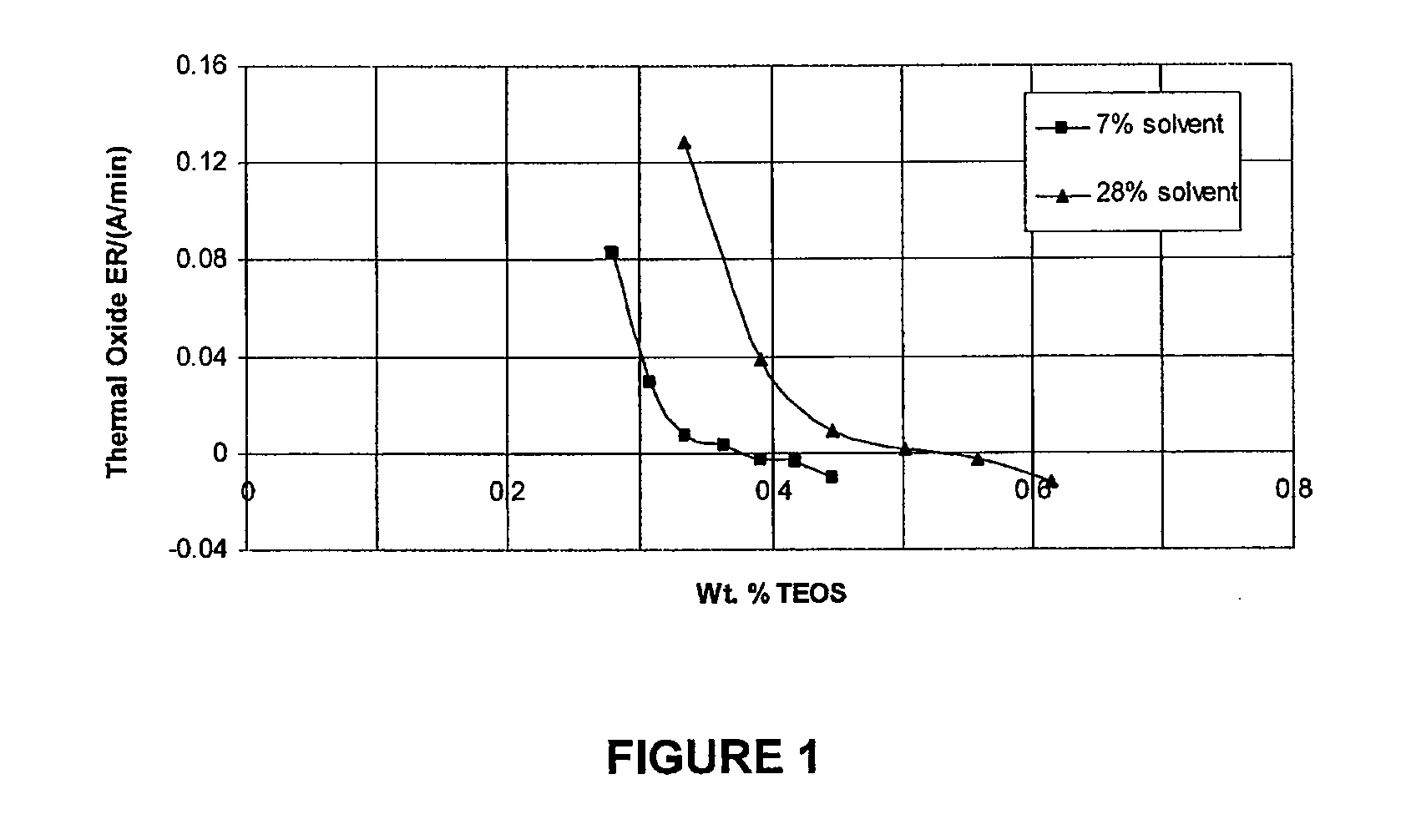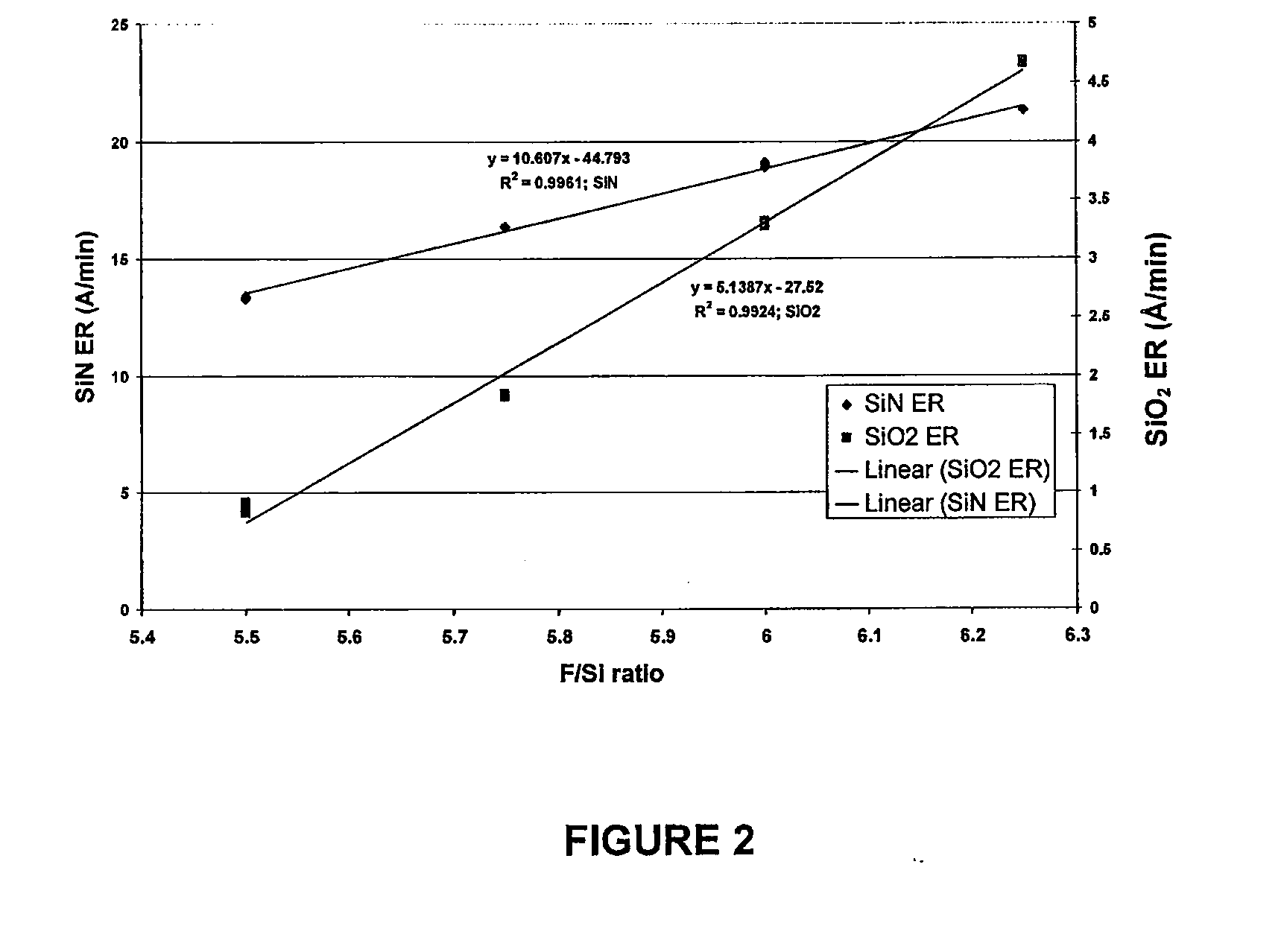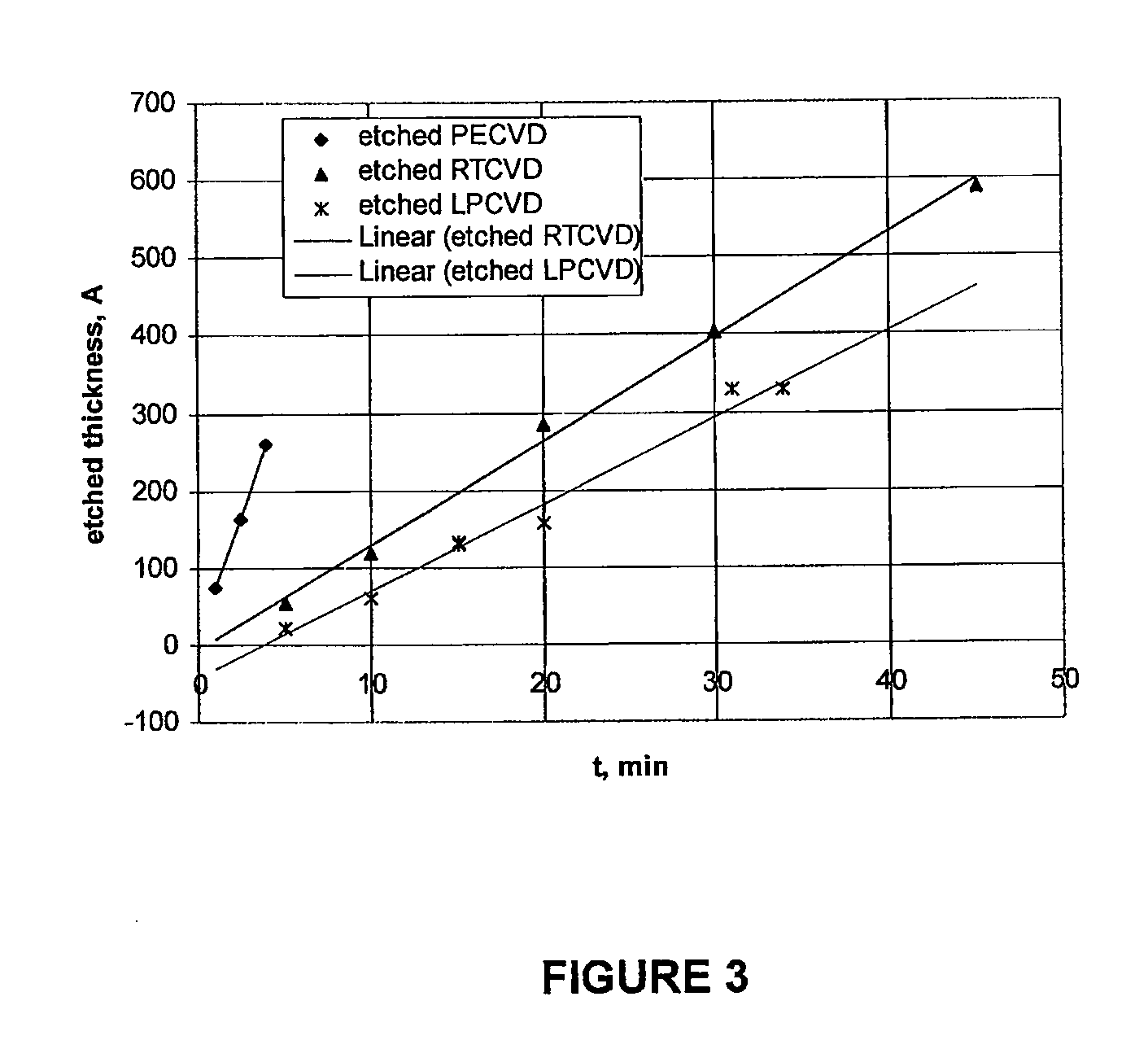Compositions and methods for the selective removal of silicon nitride
a silicon nitride and selective etching technology, applied in silicon compounds, instruments, photomechanical apparatuses, etc., can solve the problems of increased parasitic capacitance, tight tolerance of pattern definition, device contact resistance, etc., to achieve high selectiveness, high etch rate, and effective and efficient etching of a layer
- Summary
- Abstract
- Description
- Claims
- Application Information
AI Technical Summary
Benefits of technology
Problems solved by technology
Method used
Image
Examples
example 1
[0076]Concentrated formulations were made by combining 15 g fluorosilicic acid, 35 g of DPGME or diethylene glycol methyl ether and 1.52-1.92 g of TEOS or an equivalent amount of 1 micron silica glass powder. The concentrate including TEOS as the silicic acid source is aged by stirring at 20-23° C. for at least 1 hour and then diluted for use as the removal composition of the invention. The concentrate including silica powder is stirred for 1-3 days at room temperature and then diluted for use as the removal composition of the invention. For example, the concentrate may be diluted with deionized water in a 10:1 DI water to concentrate ratio.
[0077]Typical etch rates for RTCVD-deposited silicon nitride using removal compositions such as this are in the range of about 7 to about 16 Å min−1 at 82-86° C. When TEOS is the silicic acid source, no etching of thermal silicon oxide was detected after 15-22 hours at 85° C. (experimental error is about 1-5 Å).
example 2
[0078]Blanketed RTCVD-deposited Si3N4 (˜850 Å thick) was immersed in Formulations A and B at 80° C. for up to 100 min. The wafers were first measured using an optical interferometer (Nanospec) to determine the pre-immersion thickness, followed by individually immersing each wafer in clean removal composition, pulling the wafers in 25 minute intervals, rinsing with deionized water, blowing dry with nitrogen and post-immersion measuring using the optical interferometer to determine the change in thickness to derive the etch rate of silicon nitride. The results are tabulated in Table 1.
TABLE 1Etch rate of Silicon Nitride in Formulations A and B.Pre-Post-Etch rate / ÅFormulationTime / minimmersion / Åimmersion / Åmin−1A25843.1525.97512.685A50841.475229.47512.240A75837.77583.410.058A100841.67591.97.498B25838.7598.99.592B50844.075344.59.991B75842.85151.19.223B100843.62584.457.592
[0079]It can be seen that the silicon nitride was completely removed using formulations A and B in about 75 minutes and...
example 3
[0082]Blanketed RTCVD-deposited Si3N4 (˜600 Å thick) was immersed in Formulations B, C, and E at 80° C. for 30 min. The wafers were first measured using an optical interferometer (Nanospec) to determine the pre-immersion thickness, followed by individually immersing each wafer in clean removal composition, pulling the wafers, rinsing with deionized water, blowing dry with nitrogen and post-immersion measuring using the optical interferometer to determine the change in thickness to derive the etch rate of silicon nitride. The results are tabulated in Table 3.
TABLE 3Etch rate of Silicon Nitride in Formulations B, C and E.Pre-Post-Etch rate / ÅFormulationimmersion / Åimmersion / Åmin−1C595.95338.488.58E579.78337.708.07B627.35391.357.87B609.85354.108.53B616.20374.728.05
[0083]In addition, blanketed NiPtSi was immersed in the same formulations at 80° C. for 30 minutes and the pre-immersion and post-immersion sheet resistance measured using a four-point probe. The results are tabulated in Table ...
PUM
 Login to View More
Login to View More Abstract
Description
Claims
Application Information
 Login to View More
Login to View More - R&D
- Intellectual Property
- Life Sciences
- Materials
- Tech Scout
- Unparalleled Data Quality
- Higher Quality Content
- 60% Fewer Hallucinations
Browse by: Latest US Patents, China's latest patents, Technical Efficacy Thesaurus, Application Domain, Technology Topic, Popular Technical Reports.
© 2025 PatSnap. All rights reserved.Legal|Privacy policy|Modern Slavery Act Transparency Statement|Sitemap|About US| Contact US: help@patsnap.com



